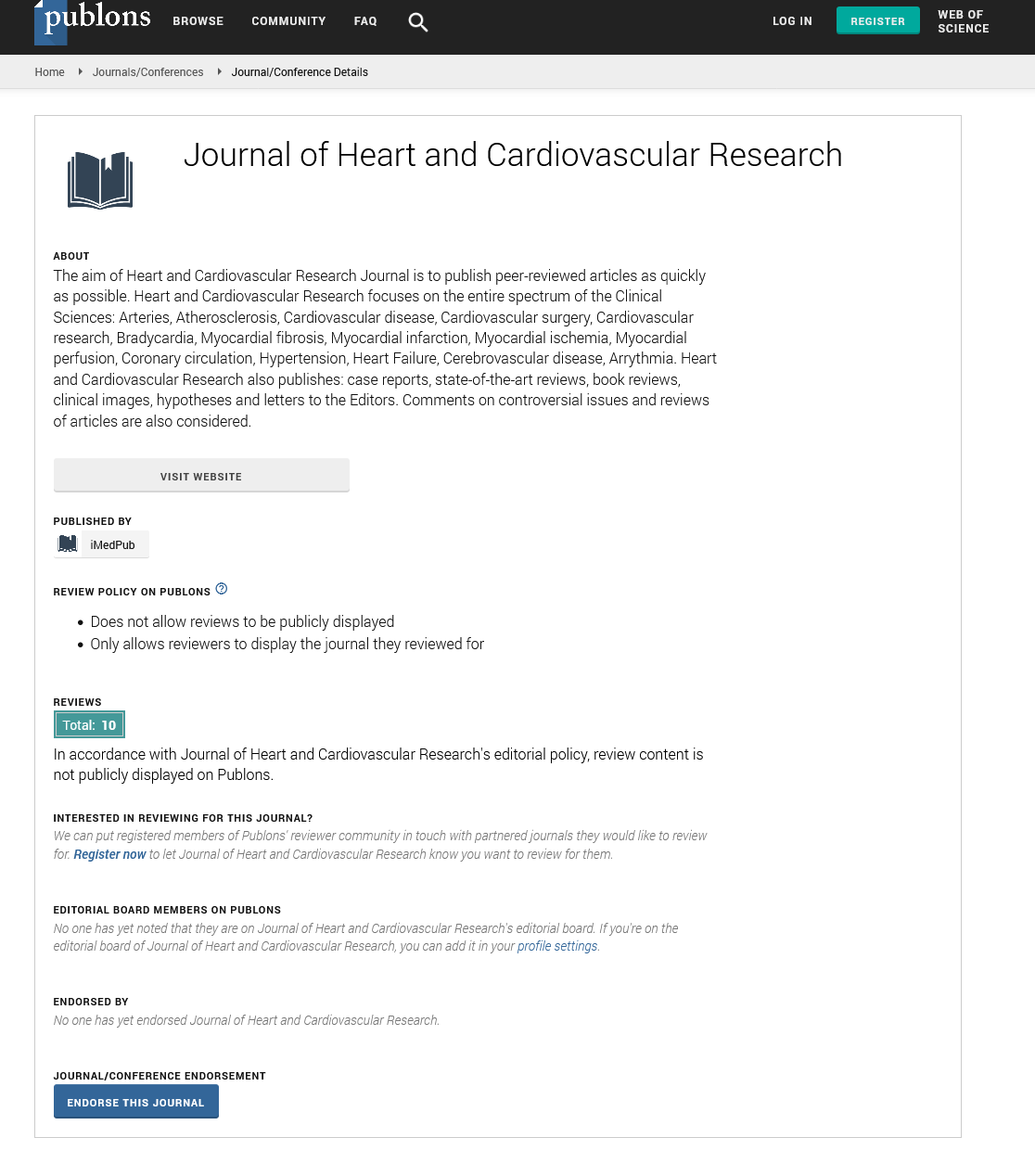ISSN : ISSN: 2576-1455
Journal of Heart and Cardiovascular Research
Abstract
Rare Cardiac Manifestation of a Commonly Prescribed Drug: Takotsubo Cardiomyopathy Caused by Allopurinol Induced Dress Syndrome
It presents a case of 42-year-old male with history of chronic kidney disease stage with rash, itching and swelling. Two weeks before he was started on allopurinol for hyperuricemia. Exam showed swelling of face, extremities with diffuse papular rash. Temperature 99.3, BP 122/93, RR 18. Blood work showed worsening renal function (Cr 3.10), transaminitis (LDH 184, AST 104, ALT 136) and eosinophilia of 13.6%. RegiSCAR score of 6 was highly suggestive of Dress Syndrome. Patient's allopurinol was discontinued. Patient was started on steroids and showed improvement. Patient returned three weeks later with chest pain and shortness of breath. BP 110/68, Pulse rate 132, respiratory rate 30 breaths/min, Sat O2 87%.CK-MB 30 and troponin 10. Eosinophil count 19%. EKG showed sinus tachycardia and diffuse ST elevation. Emergent cardiac catheterization showed no coronary artery disease, severe LV systolic dysfunction with apical dilation. Ejection fraction was 20% (EF of 55%-60% baseline). Findings were consistent with Takotsubo Cardiomyopathy (TS). He was continued on steroids and lasix. Skin biopsy showed superficial perivascular dermatitis. Subendocardial biopsy showed mild perivascular and subendocardial infiltrates not suggestive of active eosinophilic myocarditis. Patient condition stabilized, and EF improved to 45%-50%. He was discharged on prednisone taper. Discussion: DRESS syndrome is rare, potentially life-threatening hypersensitivity reaction. Early recognition is important as it has associated mortality of 10%. European Registry (RegiSCAR) is the most commonly used diagnostic criteria. Drug induced Takotsubo cardiomyopathy is mostly associated with medication causing direct or indirect catecholamine stimulation. Although a common association with Dress Syndrome, allopurinol induced takotsubo cardiomyopathy is extremely rare. To our knowledge only one other case has reported. We aim to highlight the importance of clinical suspicion for takotsubo cardiomyopathy in patients with new onset heart failure treated with allopurinol that remains a common prescription medication.
Author(s): Danish Abbasi, Hina Mannan, VineshKumar Patel and Syed Farhan Hasni
Abstract | Full-Text | PDF
Share This Article
Google Scholar citation report
Citations : 34
Journal of Heart and Cardiovascular Research received 34 citations as per Google Scholar report
Journal of Heart and Cardiovascular Research peer review process verified at publons
Abstracted/Indexed in
- Google Scholar
- Sherpa Romeo
- China National Knowledge Infrastructure (CNKI)
- Publons
Open Access Journals
- Aquaculture & Veterinary Science
- Chemistry & Chemical Sciences
- Clinical Sciences
- Engineering
- General Science
- Genetics & Molecular Biology
- Health Care & Nursing
- Immunology & Microbiology
- Materials Science
- Mathematics & Physics
- Medical Sciences
- Neurology & Psychiatry
- Oncology & Cancer Science
- Pharmaceutical Sciences
